The war on America’s working class
Batya Ungar-Sargon's Second Class captures the elite assault on blue-collar America.

Want to read spiked ad-free? Become a spiked supporter.
Batya Ungar-Sargon’s first book, Bad News: How Woke Media is Undermining Democracy, was a barnstormer of a read. This was partly because it was punching up and pointing out the hypocrisy of America’s super-privileged woke journalists.
Reading Ungar-Sargon’s new offering, Second Class: How the Elites Betrayed America’s Working Men and Women, was an entirely different experience. Here she explores, largely through interviews, the lives of those living at the opposite end of the social ladder to America’s cultural elites. She arrives at a distressing conclusion: for countless hard-working people, the American Dream is increasingly out of reach.
Ungar-Sargon doesn’t hide her fondness for her interview subjects. It’s not hard to see why. They are fair-minded and devoid of the woke politics and therapy-infused self-obsession that characterise so much of America’s middle and upper-middle class.
As the opinion editor at Newsweek, Ungar-Sargon is rare among mainstream journalists. She is one of the few willing to explore class differences in America. The overall message of Second Class may be bleak, but her conclusions are illuminating.
Ungar-Sargon explodes the liberal myth of a radicalised, right-leaning class of hicks intent on bringing down democracy and kick-starting a civil war. Instead, she finds a racially diverse, politically moderate working class. ‘Polarisation’, she concludes, ‘is an elite phenomenon’.
She finds light amid the gloom, too. There are still good jobs to be had for people without college degrees, she notes. Skilled tradespeople can command high salaries and, in places like Nevada where hotel workers have a strong union, even cleaning staff can get great benefits.
But this is not the case for most of those she interviewed. Facing exorbitant housing costs and expensive healthcare, their lives are precarious. ‘More than 80 per cent of Americans are making at least $16 an hour’, she writes, ‘yet the hallmarks of middle-class life are increasingly beyond their means, however frugally they live and however hard they work’. She notes that there are millions who have no savings and no ability to save because of the cost of living. They will never be able to afford to retire.
The story of Nicole is particularly depressing. Nicole grew up poor, but her parents did manage to buy their home. Now, she pays ‘75 per cent of her income in rent, and makes $20 a month too much to qualify for [government-subsidised housing]’. Nicole doesn’t live in Manhattan or San Francisco. She lives in Ohio.
What are these people going to do? How will they live out their lives? They will spend their lifetime working, but will have little to no provision when they are no longer able to work. The implications of this problem are nightmarish, and yet – as Ungar-Sargon points out repeatedly – they are absent from mainstream political debate. ‘The truth is we have one party in this country that represents corporations and the Chamber of Commerce, and another that represents the educated, credentialed elite and the dependent poor’, she writes of the Republicans and Democrats respectively. There is no party willing to ‘assume a working-class agenda’.
America’s political and cultural elites, she argues, ‘will find any number of slurs to avoid acknowledging the truth: the American economy rewards them to a far greater degree than the people whose irreplaceable labour they need to survive’.
One of the main injustices working-class Americans face is the excessive credentialism that has crept into all jobs, not just ones traditionally viewed as white collar. So many jobs now require college degrees. This means that working-class people without college degrees are unable to access jobs that once gave them financial stability and social mobility.
Ungar-Sargon calls this the ‘diploma glass ceiling’. One of her interviewees, an experienced electrician in Ohio, describes being turned down when a management position opened up at the factory where he worked. ‘His bosses, who he knew and liked him, refused to even consider him for the position.’
The electrician tells Ungar-Sargon that: ‘Working-class people should have a shot at those jobs – they shouldn’t be training people who know less than them to oversee their work, just because that person got a college degree in some generalised field like “chemical engineering”, who is completely inadequate to do the task that they’re being expected to do, and doesn’t understand the working-class culture they’ve entered.’
The economic hardships faced by blue-collar Americans are compounded by the sneering attitudes of the elites, who paint the proles as irredeemably racist and backward. This is despite, as Ungar-Sargon shows, their diversity and tolerance. She describes this as ‘the slow extinction of the working class through silencing and contempt’.
Many of those Ungar-Sargon spoke to characterised culture-war issues as irrelevant to their immediate needs. This is true to a certain extent, but the culture war is not frivolous. Wokeness is an attack on the working class. It aims to demoralise those lower down the social ladder, while legitimising the rule of those at the top – the supposedly virtuous and progressive.
Trade unions are no help. These supposed stalwart protectors of working-class interests have all but abandoned their base. Although union workers still get paid more on average than non-union workers – the Las Vegas hospitality-workers union does wonders for its members, for instance – union leaderships have embraced ‘the permanent culture of progressive, college-educated, coastal elites’.
The disconnect between union leadership, who skew entirely Democratic in political support, and their members is most stark on the issue of illegal immigration. The Democrats are now effectively the party of open borders. Yet, quoting from a 2008 briefing to the United States Commission on Civil Rights, Ungar-Sargon notes that immigration was responsible for nearly half of the 18 per cent decline in black employment between 1980 and 2000. And yet, American liberal policymakers can continue to slander those concerned about immigration as right-wing racists.
Ungar-Sargon dismisses the canard that immigrants are needed because ‘nobody wants to do’ the kind of work they tend to do. ‘Millions and millions of Americans find dignity in this labour’, she writes. ‘What lack of dignity exists is in the conditions of workplaces that don’t pay well or protect their workers or offer a pathway to a dignified retirement.’
As much as the left wants to deny it, Trump’s Republicans are the closest thing America’s working class currently has to representation. Take the issue of credentialism, in the form of university degrees. In June 2020, President Trump signed an executive order telling the Office of Personnel Management to revise the qualifications for government jobs, switching the emphasis from a college degree to relevant experience. This was a ‘merit-based’ reform that aimed to ‘replace degree-based hiring with skills- and competency-based hiring’. On this issue alone, the Trump administration would have benefitted the people interviewed in Second Class.
Still, as far as America’s elites are concerned, it’s much easier to smear the working class, than it is to make the hard policy decisions that are needed to right the sinking ship.
Jenny Holland is a former newspaper reporter and speechwriter. Visit her Substack here.
Picture by: Getty.
To enquire about republishing spiked’s content, a right to reply or to request a correction, please contact the managing editor, Viv Regan.

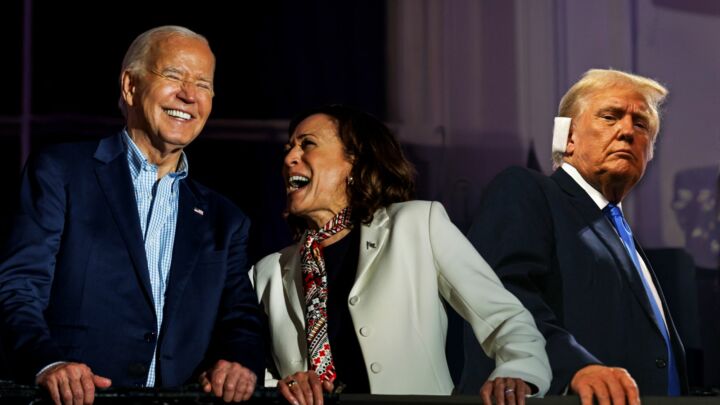

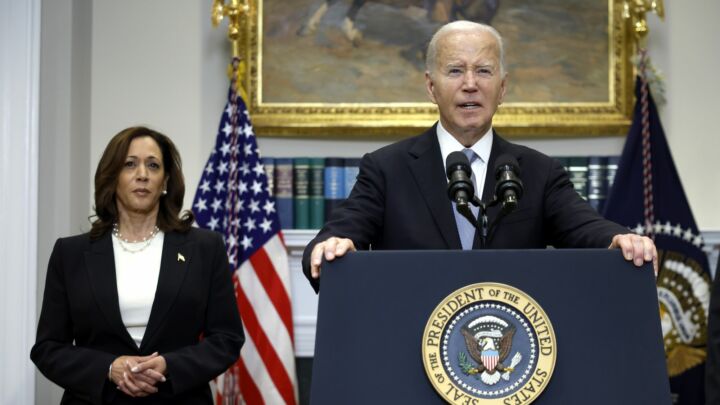
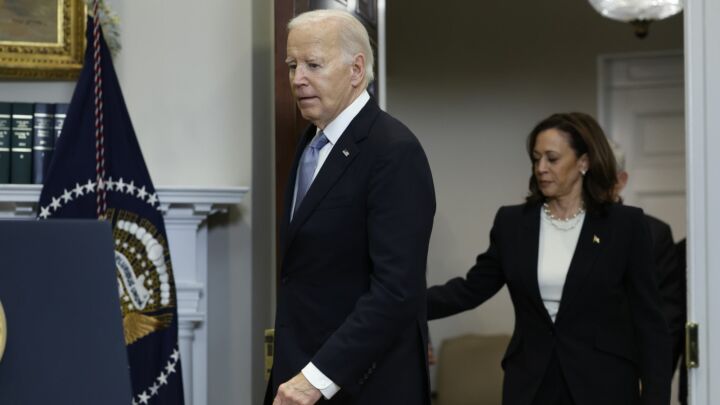

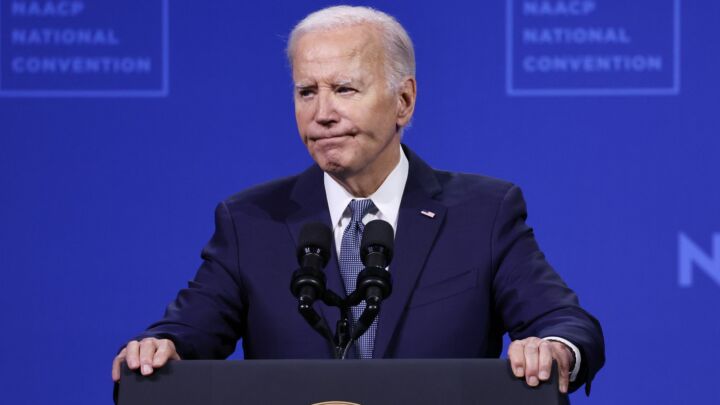
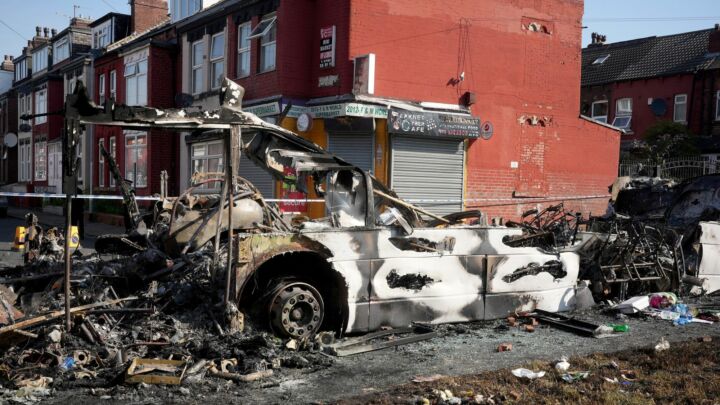

Comments
Want to join the conversation?
Only spiked supporters and patrons, who donate regularly to us, can comment on our articles.